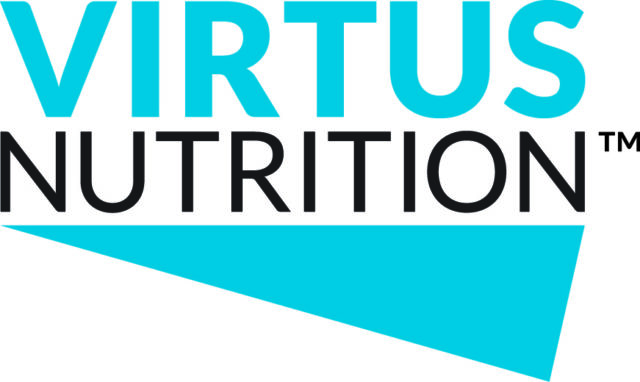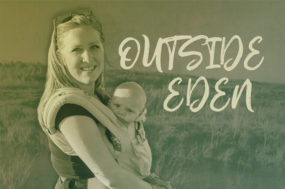From conventional to organic to biotech, Jim and Julie Petersen and their four kids, Justin, Jacob, Joshua and Jenny have come together to make the most out of the opportunities their lives provide them.
The beginnings
The Petersen family has been involved with farming for as long as Jim can remember. Before his parents bought the family farm back in 1965, they rented land in the area where the homestead now resides.
The farm stretches over 290 acres, but only about half if it is farmable. Because of his growing family, Jim also rents hundreds of acres from other family members and neighbors throughout the area.
This, along with 700 lambing ewes and 100 stock cattle make up the mainstay of the Petersen’s farm life.
As Jim and I took a driving tour of the farm, he summed up getting started this way, “Julie and I bought the farm in 1987 and my dad still comes out to help when he feels up to it.
My dad went broke farming in the mid-80s, but I always felt there was a future in it, so I convinced my wife we could make a go at it.
Yes, it has been a battle to stay in it, but I like that I can be out and work with the kids and it has taught my kids how to work. We see such a difference in our kids and I wouldn’t change that for anything.”
Making the farm work
Over the years, Jim and his family have continued to carve out a niche with their farm. Hay and other crops raised go to support both their animals and several other smaller farms throughout the area.
As time moved along, it was one of these neighbors, some of his cousins, that convinced Jim to get into organic hay.
“We started doing organic farming in 2003. We had cousins that had been telling us that we needed to start working in that direction and in the summer of 2002, they offered to rent 160 acres of land to us if we would farm it organically. That was the final push we needed to start the organic route on the land we farm.”
Since then, organic acres have continued to increase on their farm, but so has the use of conventional and biotech farming techniques as well. “Directly in Knoxville we have fields we farm that have biotech soybeans and corn growing on them.
There are lots of organic people that have told us we don’t belong in both areas of growing, but we have made the decision to work with all options available to us on the land we work.
“Because a lot of the farmland we rent is on a one-year lease, we can’t move everything over to organic production. I am concerned that by the time we worked it over to organic, we might not be able to get onto it the next year.
In addition, not all ground is suitable for organic production. If that is the case, it only makes sense to work with it conventionally or on some fields, work with biotech crops.
If I could do everything organically, I would start to move that way, but reality says we have to make a living, so we do what is best for our family and making it work.”
Jim added, “In looking at changing fields over from conventional farming to organic, we have really had to take a close look at the ethanol market.
We decided that for now, we had better take advantage of the high corn prices and ride it out as long as we can before we move over to organic production.
“I will be honest, we are a little different from most growers in our area. We are willing to look at different crops, different methods and take on challenges that most people tend to shy away from.”
As we continued to drive through the rolling hills and valleys that make up most of the organic hay acres, Jim noted that shifting to a different method of farming has had its challenges. “Switching over to organic has definitely been a learning curve for us. We had to learn the best weed control methods and then how to market our products.
The paperwork for organic has really been something we have had to come to grips with. I have three binders of paperwork and other information that has to be kept straight at all times. It can be very time-consuming and it just isn’t my favorite part of the business.”
The transition of some of the acres to organic hay has also led to some opportunities that weren’t evident at the beginning. As we dropped in between the conventionally raised corn and a new field of oats and alfalfa, Jim added, “Because we now have the certified organic hay available to us, we have made the decision to start transitioning our cows from traditional practices over to certified organic beef.
There seems to be more and more of a local market for all of our organic products and since people in Des Moines are paying $6 a pound for organic beef, it would make a good fit for us.
“The longer we are involved in organics, the greater the demand we have seen. People are beginning to contact us directly for organic hay, so it looks like we will be able to work with it in the long run. I don’t know what premiums we will be able to charge for it, but I feel good about the opportunities it can provide.
“Much of what we do is based on our local market. The way we grow, the way we produce and the way we put things together is very much dependent on what the local market demands.”
Making the family work
As we continued to work our way back towards the Petersen’s home, Jim continued to talk about his kids and what he hoped for them in the future. Jim will be the first one to admit that much of what he does today is to help begin a legacy for them.
Jim pointed out, “I also work at 3M in Knoxville driving a forklift in the afternoon and evening, but this is what I enjoy. A lot of the reason I do all of this is because we have three boys that all want to farm and keeping all the irons in the fire is one way to let them have a chance to do what they want to do.
As time goes on, we might scale back some, but a lot of it will depend on what they want to do.”
As we rounded the corner to the main road, you could see Jim’s three sons, Justin, Jacob and Joshua working on the bale wagon.
We got out of the truck and I was introduced to the next generation of Petersens that were working to take on the farming legacy. Callouses and grease accompanied the handshakes as these young men, offered along with a brief summary of what is was like growing up on the farm and what they hoped for the future.
After joking with Justin about buying his first new baler for custom work over getting married, Jim and I finished our trip with these last thoughts from Jim.
“The balance of work on the farm has been something that continues to shift and change as time goes on. Right now, much of the planting and baling has been turned over to Justin, with my dad filling in where he can. Jacob will be headed to college in the fall, but he will be around in the evenings and on weekends, so I am sure he will get to do all he can handle.
“I have tried to move myself back out of the main production and fill in doing all of the side jobs that the boys don’t seem to like as much and that I don’t mind doing.
Sometimes the neighbors have commented that I get to drive around while the boys are left doing the real work, but it takes all of us doing what we can to make things run.”
He added, “The most rewarding part of having this business is the way the kids have turned out. Justin has been to college, graduated and has now returned to the farm.
Jacob just graduated from high school as co-valedictorian and will be majoring in Animal Science at school this fall. Joshua and Jenny are moving from kids to teenagers and they seem to have the same ‘get-it-done’ attitude of the older two.
“In all honesty, my wife Julie is as much a part of the success of the kids and the farm as anyone. I really don’t think she planned on marrying a farmer, but she has been the link that has held us all together.”
As we finished back at the house, Jim brought out some brownies his wife had made for me to get me back to Idaho. I asked him if he could sum up his life and experiences in one statement, what would that be.
He left me with this: “I would like to see the kids come back and make a successful go of things here, but I am leaving that up to them. We’ll just keep making it work until then.” FG
Darren Olsen
Editor
Progressive Forage Grower









